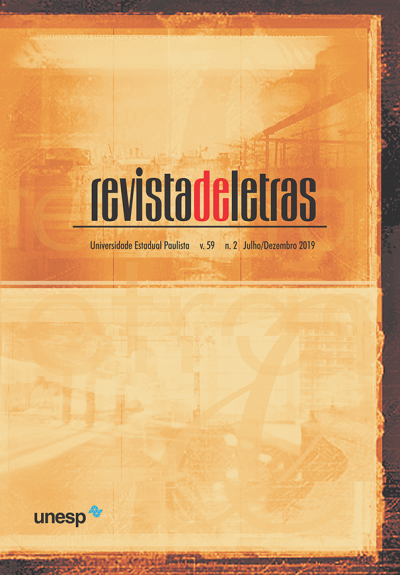Americanization, consumerism and narcissistic subjectivities: inscriptions of neoliberalism in Chile in the novel Mala Onda (1991) by Alberto Fuguet
Keywords:
Alberto Fuguet, Mala Onda, Neoliberalism, Americanization, Consumerism, Narcissistic Subjectivities,Abstract
This article develops an analysis of Mala Onda, by Alberto Fuguet (1991) Chilean narrator, journalist and filmmaker born in 1964, to unravel the textual inscriptions of neoliberalism that may emerge from his reading. The revision of the novel will be with the theoretical instruments provided by the sociologists Tomás Moulian and Gilles Lipovetsky. Even when it comes to intellectuals whose traditions are different, we will work on aspects in which they coincide, such as the double face of consumption, reviewed by both from an ambivalent perspective: domestication and control and, at the same time, as an efficient dispenser of pleasure. Likewise, we will relieve the concept of human being that defends the neoclassical model, that of homo oeconomicus, to put it in dialogue with the representations in the novel of issues such as happiness, competition and opportunities. We intend to investigate with this, the double re-foundation of the Chilean military dictatorship: first, installing a model of development of extreme economic liberalism, organized around the deployment of private initiative in all spheres of life, and a gibarized State, confined to the residual spaces of the market; and second, the modulation of the subjectivities and behaviors of the population, generated through terror and dictatorial coercion.Downloads
Published
13/10/2020
Issue
Section
Varia
License
Os manuscritos aceitos e publicados são de propriedade da Revista de Letras. Os originais deverão ser acompanhados de documentos de transferência de direitos autorais contendo assinatura dos autores.
É vedada a submissão integral ou parcial do manuscrito a qualquer outro periódico.
A responsabilidade do conteúdo dos artigos é exclusiva dos autores.
É vedada a tradução para outro idioma sem a autorização escrita do Editor ouvida a Comissão Editorial.

